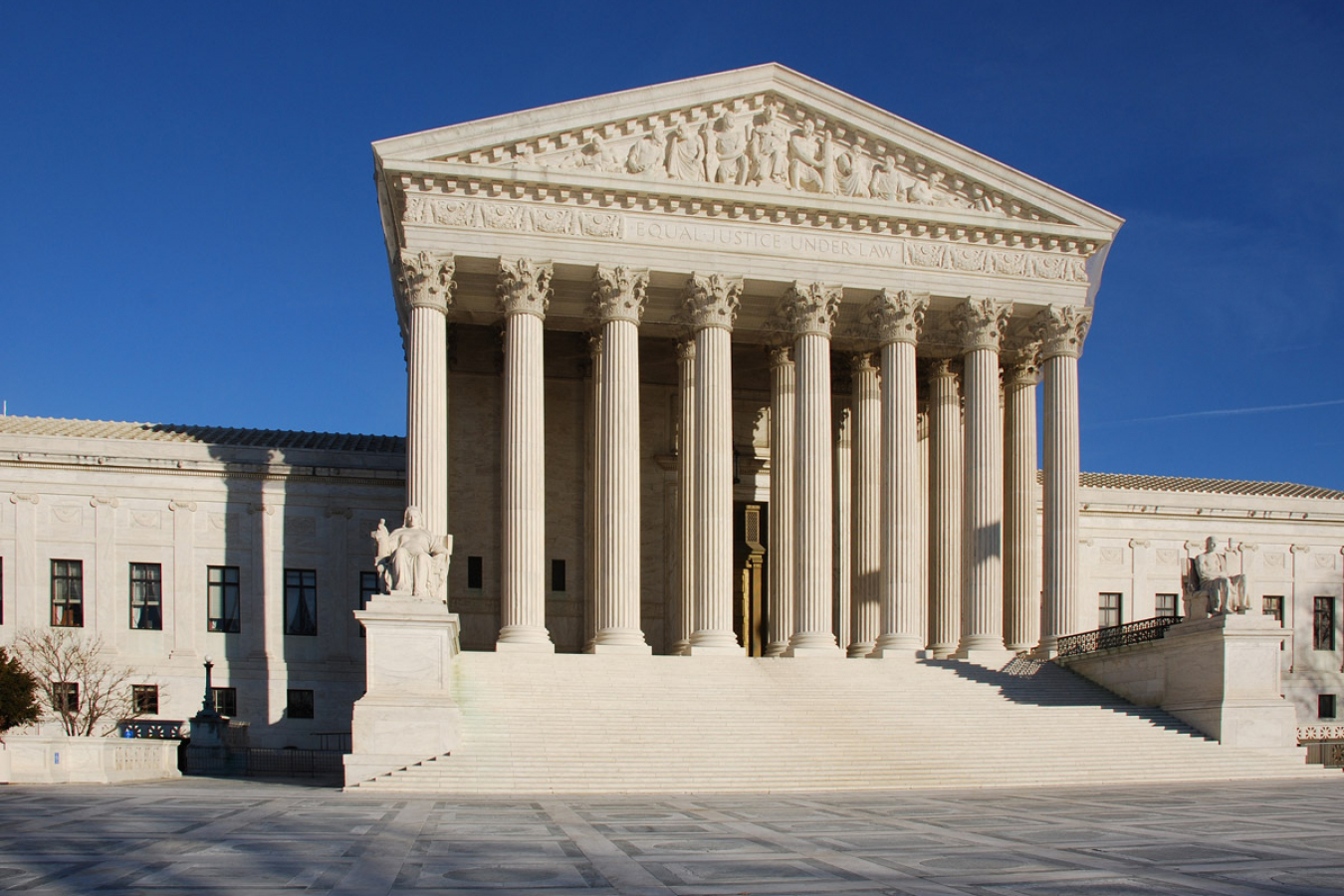us-supreme-court.jpg

Photo Jarek Tuszyński by on Wikimedia Commons.
Support migrant centric journalism today and donate

The US Supreme Court has blocked immigrants with Temporary Protected Status (TPS) from accessing US green cards. The ruling applies to TPS immigrants living legally in the US, but may have initially entered the country without legal permission. The news comes as a blow to thousands of immigrants who rely on TPS and are looking to secure US permanent residence.
Supreme Court judges ruled unanimously on June 7 to deny green cards to TPS immigrants who are in the US under certain protections having fled violence or unsafe conditions in their own country.
Plaintiffs in the case, Jose Santos Sanchez and Sonia Gonzalez, fled El Salvador in the 1990s and have lived in the US for nearly 30 years, according to a report published by The Independent. When TPS was designated to El Salvador in 2001, Sanchez and Gonzalez applied, were granted TPS status and have maintained it ever since.
Green card denied
However, when Sanchez applied for a US green card in 2014, he was refused. One of the judges presiding over the case in the Supreme Court, Justice Elena Kagan, said: “The question here is whether the conferral of TPS enables him to obtain [Legal Permanent Residency] status despite his unlawful entry. We hold that it does not.”
Under US federal law, immigrants who are ‘inspected and admitted’ into the US may apply for an adjustment to their status or lawful permanent residence – otherwise known as a green card.
TPS holders and US immigration advocates have argued that the complicated process of obtaining permanent residence status should ‘fulfil the inspected and admitted requirements’.
However, Justice Kagen stated that TPS designation is not itself an ‘admission’. She said: “An ‘admission’ is defined as the lawful entry of the alien into the United States after inspection and authorization by a US immigration officer.”
“The TPS program gives foreign nationals nonimmigrant status, but it does not admit them. ... Because a grant of TPS does not come with a ticket of admission, it does not eliminate the disqualifying effect of an unlawful entry,” she added.
TPS protections
Approximately 400,000 people are currently living in the US under TPS protections from more than a dozen countries, including Burma, Haiti, Honduras, Nepal, Nicaragua, Venezuela, Somalia, South Sudan, Sudan, Syria and Yemen.
Following the Supreme Court’s ruling, those who were not lawfully admitted into the US prior to being granted TPS status, most of whom are from Central America, potentially face being deported when protections expire.
TPS holder and regional organizer for the National TPS Alliance – a collation of more than 50 groups advocating for permanent residency statuses for TPS recipients – Claudia Lainez described the Supreme Court’s decision as a ‘huge blow as one of the only available routes for families to adjust their status in the US’.
Urgency to pass US immigration reforms
According to US immigration advocacy groups, civil rights’ groups and Democratic lawmakers, the Supreme Court’s decision ‘underscores an urgency to pass immigration reform in Congress that could secure a pathway to lawful residence for thousands of immigrants’.
Ms Lainez said: “This will not deter our struggle for obtaining green cards for all TPS holders. This news only emphasizes the fact that Congress must act now to guarantee permanent protections and for President Biden to expand the TPS status to everyone who deserves it.”
In March 2021, the US House of Representatives passed a sweeping US immigration reform bill, which would create a citizenship process for undocumented immigrants brought to the US as children – or ‘Dreamers’ – plus TPS recipients. The bill was passed by a vote of 228 – 197.
SECURE Act
One of the leading sponsors of a Senate measure, known as the SECURE Act, US Senator Ben Cardin, said the act would provide a pathway to permanent residence for TPS recipients and that TPS protections are supposed to show that the US is a ‘land of compassion to those in humanitarian distress’.
Cardin said: “The Supreme Court’s decision makes the US a land of the broken.”
In May, the Biden administration renewed TPS designation for Haiti, with US Homeland Security Secretary, Alejandro Mayorkas, saying that the country was experiencing ‘serious security concerns, social unrest, an increase in human rights abuses, crippling poverty and a lack of basic resources, which have been exacerbated by the coronavirus pandemic’.
Following the Supreme Court’s decision, a coalition of US immigration advocacy groups and activists to pass the SECURE Act are urging Congress and the Biden administration to ‘provide a long-term solution for immigrants who have made America their home’.
Namrata Pokhrel, a Nepali TPS holder from Texas, said: “TPS holders contribute immensely to the fabric of our nation. Living deadline to deadline, under the constant threat of being sent back to perilous conditions, is not protection.”
Workpermit.com can help with US employment-based visas
If you would like to apply for a US work visa – including L1 visas, E2 visas, O1 visas and H1B visas - Workpermit.com can help.
Workpermit.com is a specialist visa services firm with over thirty years of experience dealing with visa applications. We can help with a wide range of visa applications to your country of choice. Contact us for further details. You can also telephone 0344 991 9222.




















